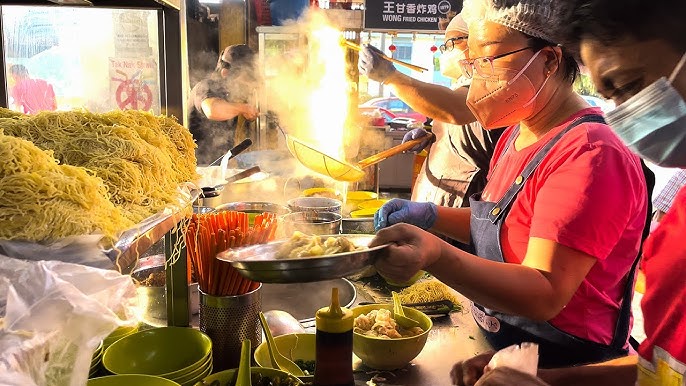The constant Matt Levine Point out some interesting economic policies that link the international jet set to the fried noodles of Malaysian street hawkers. The EU and the US are creating strong economic incentives for creating sustainable aviation fuels (SAFs), and a good way to do this is to recycle secondhand cooking oils (UCOs). What’s good? Take the waste and turn it into jet fuel! However, EU and US policies are so strong that all cooking oils used in the EU and US cannot meet the demand. Here is Amazing sentence, “Europe can’t collect enough royalty oil to fly planes.”
In the US, credit under the Inflation Reduction Act is $1.75 In $1.85 Per gallon of SAF. Meanwhile, cooking oil is subsidized by some  Part of the world. result?
Part of the world. result?
Malaysian restaurants, food stalls and home cooks are “one of the world’s leading suppliers of both UCO and virgin palm oil” and can pay less. Fresh Cooking oils than international markets pay Used Cooking oil. Fresh edible oils are more convenient for cooks than used edible oils (which taste better) but less useful for refiners and airlines than used edible oils (which do not reduce carbon impact). Fresh edible oils are also subsidized by the Malaysian government. “Subsidized edible oil sells at RM2.50 per kg and is a UCO transaction price of up to RM4.50 per kg.” So, if you run a restaurant, buy fresh edible oil for about $0.60 (USD), fry the food several times and then refill it for $1.
Kuala Lumpur’s noodle hawkers are getting a small bump of profit, but who stalls to make sure the oil is actually used? And what is being used? One or two? The clever entrepreneur cut off the intermediary. Virgin palm oil replaces used cooking oil and finished food! Sustainable aviation fuels contribute to deforestation in Malaysia. Malaysia exports cooking oils that are “used” than they use. There’s no surprise.
All of these show a broader point. Externalities suggest that policy interventions may improve outcomes, but markets are complex and politics are dull. It’s easy to make things worse. If intervention is required, a uniform carbon tax wins a patchwork of production-specific subsidies. Price is a signal wrapped in incentives. Send the same signal and the same incentive to everyone, and the lowest emissions will be cut first, Total cost is minimized.
Importantly, carbon tax rewards effective solutions, even if planners never think about it, and airplanes and airplanes. Not only clean fuel Operational adjustments like Jet cleaning. In contrast, subsidies stitch policies together with specific technologies such as used cooking oil. That brings rent and inefficiency.
Tax carbon, not input. Avoid games with paperwork. One validation point for fuel supply points is easier than tracing a global waste chain. Do not subsidize fried oil. Audit Street Hawkers. It taxes emissions.
The post flying fried oil first appeared in the marginal revolution.







